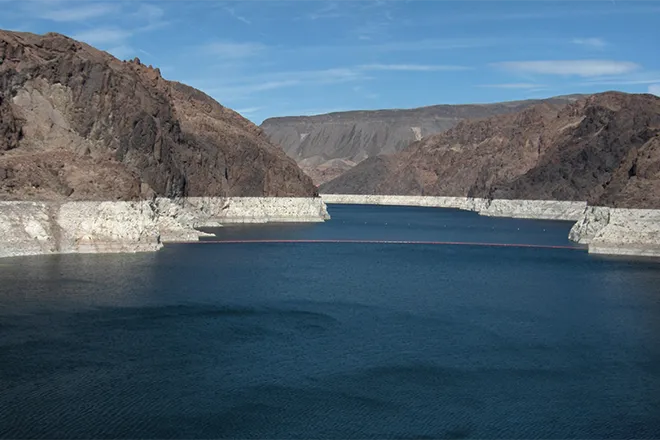
Daily Audio Newscast Afternoon Update - June 19, 2025
© INDU BACHKHETI - iStock-1336427297
News from around the nation.
Israel and Iran trade strikes as Trump weighs US involvement in conflict; Medicaid cuts risk health-care access for MS military families; NJ Advocate: Shore powered cargo ships help ocean, port community health; CT farmers impacted by USDA defunding climate programs.
Transcript
The Public News Service Thursday afternoon update.
I'm Mike Clifford.
First from the BBC, Israel's defense minister says Iran's supreme leader can no longer be allowed to exist after the Seroka Hospital was hit during an Iranian missile attack.
Iranian state media reports the missile strike targeted a military site next to the hospital in southern Israel, not the facility itself.
Dozens of people were reported injured across Israel after Iran fired a barrage of missiles overnight.
The BBC reports in Iran, Israel's military says it targeted sites including the inactive Arak heavy water reactor.
There have been no reports of radiation threats or injuries overnight.
The attacks come at a critical time as President Trump considers the possibility of direct U.S. involvement in Israel's campaign.
Meantime, as Republican lawmakers waive billions of dollars in potential Medicaid cuts, a new report warns the move could affect health coverage for Mississippi's military families.
The analysis finds more than 850,000 people enrolled in Medicaid list TRICARE, the military's health insurance, as their primary coverage.
One in 10 children of service members with TRICARE is also enrolled in Medicaid.
In Mississippi, retired Army General Augustus Collins says the cuts would hit the youngest and lowest paid service members the hardest.
The one thing you don't want is to deploy a service member somewhere around the globe and he's worried about his family, whether or not they've got proper food to eat or whether they've got proper health care.
It's hard to focus on the mission.
And when you can't focus on the mission, you put yourself as well as those around you in danger.
The report was released jointly by the Georgetown University Center for Children and Families and the nonprofit Mission Readiness.
I'm Trumel Gomes.
Next June is World Oceans Month.
Advocates are warning that industrial shipping pollution hurts both our oceans and port communities.
At least 31 million people live within three miles of a port, according to the Environmental Protection Agency.
That includes thousands of New Jerseyans.
Industrial shipping frequently relies on heavy fuel oil, which releases carbon dioxide, sulfur oxides and black carbon into the atmosphere, causing harm to marine ecosystems and port communities.
Altarice Frazier with Pacific Environment says if the global shipping industry was its own country, it would be one of the largest polluters in the world.
Industrial shipping burns some of the dirtiest fossil fuels like heavy oil, producing toxic air pollutions and greenhouse gases.
I'm Simone Perez.
Out of Connecticut, where farmers could face significant impacts from the U.S.
Department of Agriculture defunding of programs aimed at combating climate change, Kaitlin Kimball is co-owner of Sunset Farms.
Her farm has flooded and been hit by a late frost in the last two years.
So when we lose that income, that impacts us the following year as well, because we go into the winter with less money, which means we can purchase less supplies or we have to take out more credit.
While farms generally have liability insurance, she notes not all have crop insurance.
This is Public News Service.
Next to Ohio, where child welfare advocates are urging lawmakers to restore more than $60 million in funding to address the state's ongoing foster care placement crisis.
Governor Mike DeWine and state House leaders included funding in the budget to expand the state child protective allocation and create new child wellness campuses.
But the Ohio Senate removed both investments.
Scott Britton, assistant director of the Public Children's Services Association of Ohio, says counties can't manage this crisis alone.
Children deserve a safe place to sleep that meets their behavioral health and their well-being needs.
The cost of foster care placements is outpacing inflation. 68 percent or $158 million more today than just five years ago.
And federal reimbursement is declining.
The Senate cut $61 million from the House budget, $31 million from county child protection funds and $30 million from proposed wellness campuses.
Conference committee members are working to finalize the budget by June 30.
Farah Siddiqui reporting.
And community college programs in Maine are helping the state meet its ambitious climate goals while creating good-paying jobs.
Governor Janet Mills wants 30,000 clean energy workers in the state by 2030, including those trained in home heat pump installation.
Kim Wilson-Roy, dean of workforce and professional solutions at Eastern Maine Community College, says students can earn their heat pump certification in just 40 hours, often through more accommodating evening courses.
In general, these kinds of programs are offering great job prospects.
And most students that are coming through that program are landing jobs well before they graduate.
She says some participants are already working as technicians and are looking to upgrade their skills or earn better pay.
State officials are aiming for an additional 175,000 home heat pumps to be installed by 2027 to help reduce greenhouse gas emissions.
I'm Catherine Carley.
Finally, the U.S. Senate's answer to the House Republicans' One Big Beautiful Bill Act includes proposals that advocates for public lands say would decimate the National Park Service and those that rely on it, including some towns in Montana.
The reconciliation bill proposes dropping nearly $270 million earmarked for the National Park Service in the Inflation Reduction Act.
That comes in the wake of a 17 percent reduction in collective park staff since 2023.
Michelle Yubaraga with the National Parks Conservation Association says stress is high in her Yellowstone-centric town.
Little rural gateway communities like ours not only are really dependent upon Yellowstone for our economy, but our friends and neighbors are employed in the parks on public lands.
So yeah, people are really concerned and upset.
In a letter to the Montana Congressional Delegation, the Gardner Chamber of Commerce noted that tourism brought in more than $260 million in non-resident spending to Park County in 2023.
I'm Kathleen Shannon.
This is Mike Clifford for Public News Service.
Member and listener supported.
Find your trust indicators at publicnewsservice.org.

















